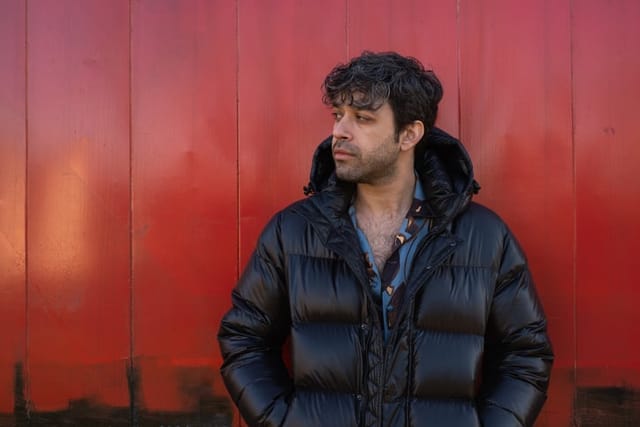Your childhood plays a big role in how you act as an adult. So, if you were a difficult child, you may have certain tendencies that lean unhealthy now that you’re grown up. Ahead are 15 specific tendencies that can influence how you handle stress, navigate relationships, and how you approach life in general.
1. You reject authority.

Struggling with authority figures, constantly resisting guidelines and rules, and preferring to do things autonomously are hallmarks of being a difficult child. Well, when you grow up, that doesn’t just suddenly go away. Today, you might hate the idea of having a boss micromanage you or being told by partners what to do, and that often leads to conflict.
2. You have a hard time trusting.

Your trust might have been seriously compromised through betrayal, inconsistency, or unstable connections in your childhood. This created a lasting impact and has made it hard for you to trust other people in adulthood. This stems from a fear of being vulnerable (another tendency on this list) or believing that others will always let you down just as you were let down as a child. This hinders you from finding meaningful and secure relationships today.
3. You neglect self-care.

In your early years, you may have been so focused on managing difficult situations or toxic relationships, that you had no room left for things like self-care. Because you never learned this on a foundational level, as an adult it can persist and impact your overall well-being. To put it into simple terms: you forget to recharge your own battery because you’re used to putting everything, like perceived threats, first.
4. You struggle with change.

If you experienced instability or lived in an unpredictable environment growing up, change can throw you for a loop. It might sound counterintuitive because if you were always experiencing sudden shifts or had no routine, you should be used to that, right? Wrong. Changes in adulthood can trigger past memories and make you feel overwhelmed. It’s hard for you to embrace the unfamiliar because you expect there to be big challenges with every change.
5. You struggle with empathy.

As a difficult child, you might not have had the right opportunities to help you understand and connect with other people’s emotions. It makes sense—if you weren’t given empathy or emotional support, how can you expect to know how to give it to others? As an adult, this shows up as not recognizing how other people are feeling or acknowledging their perspective.
6. You’re really affected by stress.

It’s common for difficult children to develop a heightened stress response to the challenges they face, like tough family relationships. Those dynamics can activate the body’s stress response and lead to an overactive reaction to stressors as an adult. Also, if your childhood lacked emotional support then that is probably why you have a hard time regulating stress.
7. You’re impulsive.

If you were a difficult child then there’s a good chance you may have experienced inconsistent discipline or a lack of guidance. Today, that manifests as impulsive behaviors used to assert your control or try to find a way to get immediate gratification. Because you needed a coping mechanism for the chaotic and unpredictable circumstances you grew up in, your adult self stuck with these impulsive behaviors.
8. You get frustrated easily.

The sad truth is that you may have never learned effective ways to cope with challenges or manage your emotions. That makes you way more prone to getting easily frustrated when you’re faced with problems as an adult. You haven’t (yet) developed the skills to handle frustration with patience, so you react quickly when things go awry.
9. You’re defensive.

Like most things on this list, being defensive is a coping mechanism. As a difficult kid, you likely faced a lot of criticism and, because of that, you developed emotional walls to keep you safe from those comments. As an adult, this defensiveness pops up every time you feel vulnerable or judged. Unfortunately, this coping mechanism can do more harm than good.
10. You crave control.
If your childhood was unstable or had a lot of challenges, gaining control now can provide you with a sense of security you never had. Having control makes you feel like you can create order in your life, whereas when you were younger, you didn’t have that same power. This can manifest as a strict personal routine or in relationships.
11. You avoid being vulnerable.

As a child, you probably learned that in order to protect yourself from emotional pain, you had to shield yourself. That meant not opening up or expressing your true feelings. As an adult, this avoidance of vulnerability impacts your relationships and makes it challenging to connect on a deeper level.
12. You’re either conflict-avoidant or confrontational.

If it was difficult for you to communicate during childhood, then there’s a good chance you’re the same way today. On the other hand, if you had to be assertive growing up in order to protect yourself, then this probably hasn’t changed. This means that now your approach to conflict can swing between total avoidance or smashing into it head first, depending on what you learned to do.
13. You self-sabotage.

Self-sabotage is an old habit that was developed to provide comfort in difficult situations. So, as an adult, even when you’re faced with success or genuinely good opportunities, you might subconsciously self-sabotage. That’s because there’s likely an underlying fear of the unknown or limiting beliefs that whatever challenges are ahead are easier to handle than success.
14. You have a negative self-image.

If you faced a lot of criticism or struggled to meet expectations in your childhood, you may have feelings of inadequacy. Those feelings often come out in adulthood as a low sense of self-worth. Because of that trauma, you see yourself through the lens of what happened in the past and lose any compassion for yourself in the present.
15. You struggle with delayed gratification.
When your childhood lacks immediate positive outcomes, it can be challenging to continue to dim those desires in adulthood. You’re an adult now, you should be able to get what you want when you want it, right? It would be great if it worked that way, but that’s not life. This has impacted your ability to work patiently towards long-term goals and your understanding that good things take time and effort.
Enjoyed this piece? Give us a like and follow Bolde on MSN for more!





